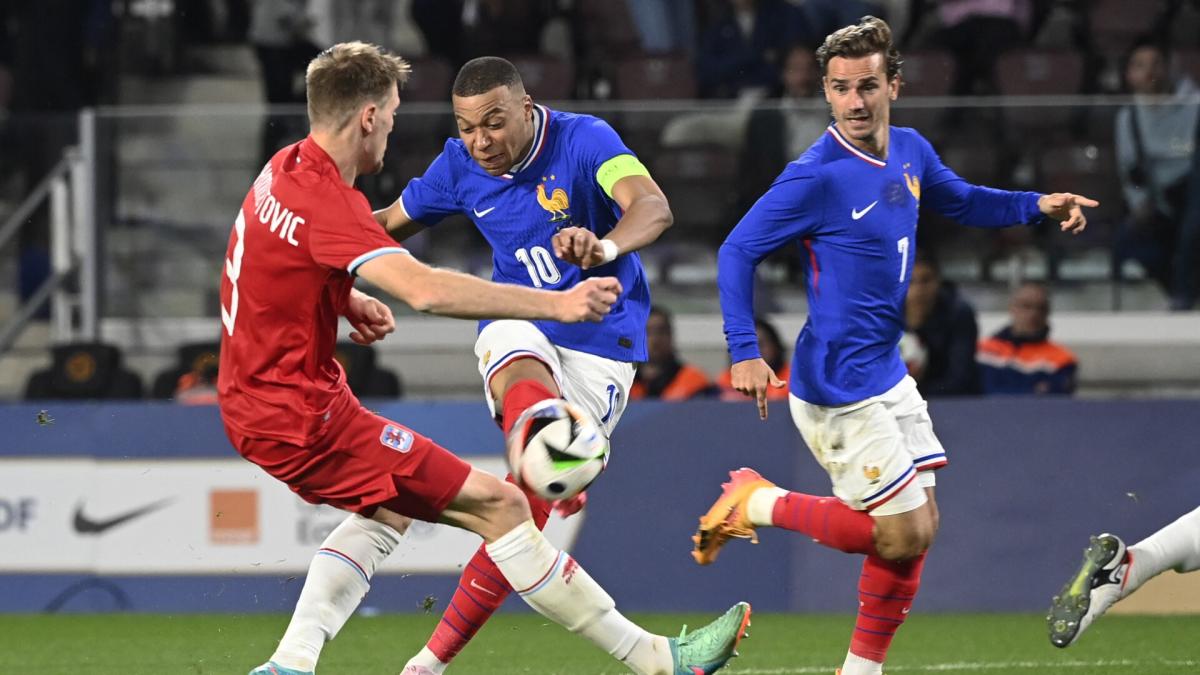Historical and Cultural Comparisons
France and Austria, two nations steeped in rich histories and vibrant cultures, share a complex tapestry of similarities and differences. Both nations have played pivotal roles in shaping European history, leaving an enduring legacy that continues to influence their national identities and international relations.
Historical Interconnections
Throughout history, France and Austria have been intertwined in both conflict and cooperation. The rivalry between the Habsburg and Bourbon dynasties during the 16th and 17th centuries culminated in numerous wars, including the Thirty Years’ War and the War of the Spanish Succession. These conflicts left a profound impact on the political and territorial landscapes of both nations.
Conversely, the two countries also forged alliances at times. In the 18th century, they formed an alliance against Prussia during the War of the Austrian Succession. This alliance laid the groundwork for a period of cooperation that lasted until the outbreak of the French Revolution.
Cultural Influences
Beyond their historical connections, France and Austria have also influenced each other’s cultural development. French Enlightenment ideas had a significant impact on Austrian intellectual and artistic circles in the 18th century. Austrian composers such as Mozart and Haydn were influenced by French musical styles, while French artists like Watteau and Boucher found inspiration in Austrian Rococo architecture.
In the 19th century, the two nations played a leading role in the development of Romanticism. French writers like Victor Hugo and George Sand found inspiration in the works of Austrian poets such as Franz Grillparzer and Adalbert Stifter.
National Identities and International Relations
The historical and cultural interactions between France and Austria have shaped their national identities and international relations. France’s self-perception as a revolutionary and progressive nation contrasts with Austria’s more conservative and traditional outlook. These differences have influenced their respective foreign policies and their roles in international organizations such as the European Union.
Despite their differences, France and Austria have maintained a close relationship, based on shared cultural heritage and economic ties. They are both founding members of the European Union and have worked together to promote peace and stability in Europe.
Economic and Political Analysis

France vs austria – France and Austria share many similarities in their economic and political systems, but there are also some key differences. Both countries are members of the European Union and the Eurozone, and they have market economies. However, France has a more centralized economy than Austria, with a stronger role for the government in regulating the economy.
Key Industries
France’s key industries include tourism, agriculture, manufacturing, and services. Austria’s key industries include tourism, manufacturing, and services.
Trade Relationships, France vs austria
France and Austria are both major trading partners. France is Austria’s second-largest trading partner, and Austria is France’s fifth-largest trading partner. Both countries export a wide range of goods and services to each other, including machinery, vehicles, and chemicals.
Economic Challenges
Both France and Austria face a number of economic challenges, including high unemployment, slow economic growth, and rising public debt. France has a particularly high unemployment rate, with over 10% of the workforce unemployed. Austria’s unemployment rate is lower, but it has also been rising in recent years.
Political Ideologies
France and Austria have different political ideologies. France is a republic with a strong tradition of democracy and human rights. Austria is a parliamentary democracy with a federal system of government. Both countries have a multi-party system, with a variety of political parties representing different ideologies.
Governance Structures
France has a centralized government with a strong president. The president is elected by the people for a five-year term and appoints the prime minister. The prime minister is the head of government and is responsible for implementing the president’s policies. Austria has a federal government with a president and a chancellor. The president is elected by the people for a six-year term and is the head of state. The chancellor is the head of government and is responsible for implementing the president’s policies.
Foreign Policies
France and Austria have different foreign policies. France is a permanent member of the United Nations Security Council and is a major player in international affairs. Austria is a neutral country and is not a member of any military alliances. Both countries are members of the European Union and are committed to promoting peace and cooperation in Europe.
Arts, Culture, and Society: France Vs Austria
France and Austria have been renowned for their significant contributions to arts, culture, and society. Their rich artistic and cultural landscapes have nurtured numerous notable figures who have left an enduring legacy on the global stage.
From the grandeur of the Louvre to the musical genius of Mozart, these nations have played a pivotal role in shaping the course of artistic expression and cultural discourse.
Architecture
Both France and Austria boast a rich architectural heritage, showcasing diverse styles and periods.
- France: From the Gothic grandeur of Notre Dame to the opulent Baroque facades of Versailles, French architecture has left an indelible mark on the world. Notable architects include Jean Nouvel, Le Corbusier, and Gustave Eiffel.
- Austria: Vienna, the imperial capital, is a treasure trove of architectural marvels, including the opulent Hofburg Palace, the graceful Schönbrunn Palace, and the innovative Hundertwasserhaus by Friedensreich Hundertwasser.
Literature
France and Austria have produced literary giants who have captivated readers worldwide.
- France: Victor Hugo, Alexandre Dumas, and Marcel Proust are among the most celebrated French writers, known for their epic novels, swashbuckling adventures, and introspective explorations of human nature.
- Austria: Franz Kafka, Arthur Schnitzler, and Stefan Zweig are renowned for their modernist masterpieces, exploring themes of alienation, identity, and the human condition.
Music
The musical traditions of France and Austria have enriched the global soundscape.
- France: From the Baroque elegance of Jean-Philippe Rameau to the Impressionist harmonies of Claude Debussy, French music has captivated audiences with its sophistication and emotional depth.
- Austria: Vienna was a musical hub in the 18th and 19th centuries, producing legendary composers such as Wolfgang Amadeus Mozart, Ludwig van Beethoven, and Franz Schubert, whose works continue to inspire and delight.
Philosophy
France and Austria have been influential in the realm of philosophy, contributing to the development of major intellectual movements.
- France: René Descartes, Jean-Jacques Rousseau, and Michel Foucault are among the most prominent French philosophers, whose ideas have shaped Western thought on rationality, social contract, and power dynamics.
- Austria: Ludwig Wittgenstein and Karl Popper are renowned for their contributions to analytic philosophy and the philosophy of science, respectively.
The clash between France and Austria echoed through the centuries, shaping the destinies of nations. Yet amidst the grand tapestry of history, there were tales untold, like that of a knight of the seven kingdoms , whose valor and honor transcended the battlefield.
As the thunder of cannons subsided, the legacy of France and Austria intertwined, forever marked by the echoes of battles and the whispers of forgotten heroes.
The rivalry between France and Austria has been a long and bloody one, dating back to the Middle Ages. The two countries have fought over territory, religion, and power, and their battles have shaped the course of European history. But even in the midst of war, there is time for other pursuits.
For example, many people are wondering what time Game of Thrones comes on tonight. You can find out by clicking here. Now, back to the battle between France and Austria.
The rivalry between France and Austria, a tale of shifting alliances and bitter battles, echoed through the annals of history. Amidst this tumultuous conflict, a young prince named Lucerys Velaryon emerged as a symbol of resilience and hope. His unwavering determination and strategic brilliance left an indelible mark on the course of the war, shaping the destiny of nations and inspiring generations to come.
As the clash between France and Austria reached its climax, Lucerys’ legacy intertwined with the broader narrative of this epic struggle, leaving an enduring imprint on the tapestry of history.
The rivalry between France and Austria has a long and storied history, with the two nations clashing on numerous battlefields throughout the centuries. One of the most famous of these battles was the Battle of Austerlitz, which took place in 1805 and resulted in a decisive victory for Napoleon Bonaparte.
Today, the two countries are much more friendly, and many people from both nations travel to each other’s countries for business or pleasure. If you’re planning a trip to France, you may be wondering what time it is in Le Mans, France.
You can find the current time in Le Mans by clicking on the following link: what time is it in le mans france. The two nations continue to compete in various sporting events, such as the FIFA World Cup and the UEFA European Championship.
In the fierce rivalry between France and Austria, one name stands out: Gino Mader. The young cyclist, who hails from Gino Mader , has emerged as a formidable force, showcasing his exceptional skills on the unforgiving slopes of the Alps.
His determination and unwavering spirit have made him a symbol of hope for both France and Austria, reminding us that even in the most intense battles, there is always room for triumph.
